The link between vitamin D and alcohol was somewhat murky until recently. Long regarded as the “bone health” vitamin that we can get from the sun, vitamin D turns out to be crucial for mental health as well.
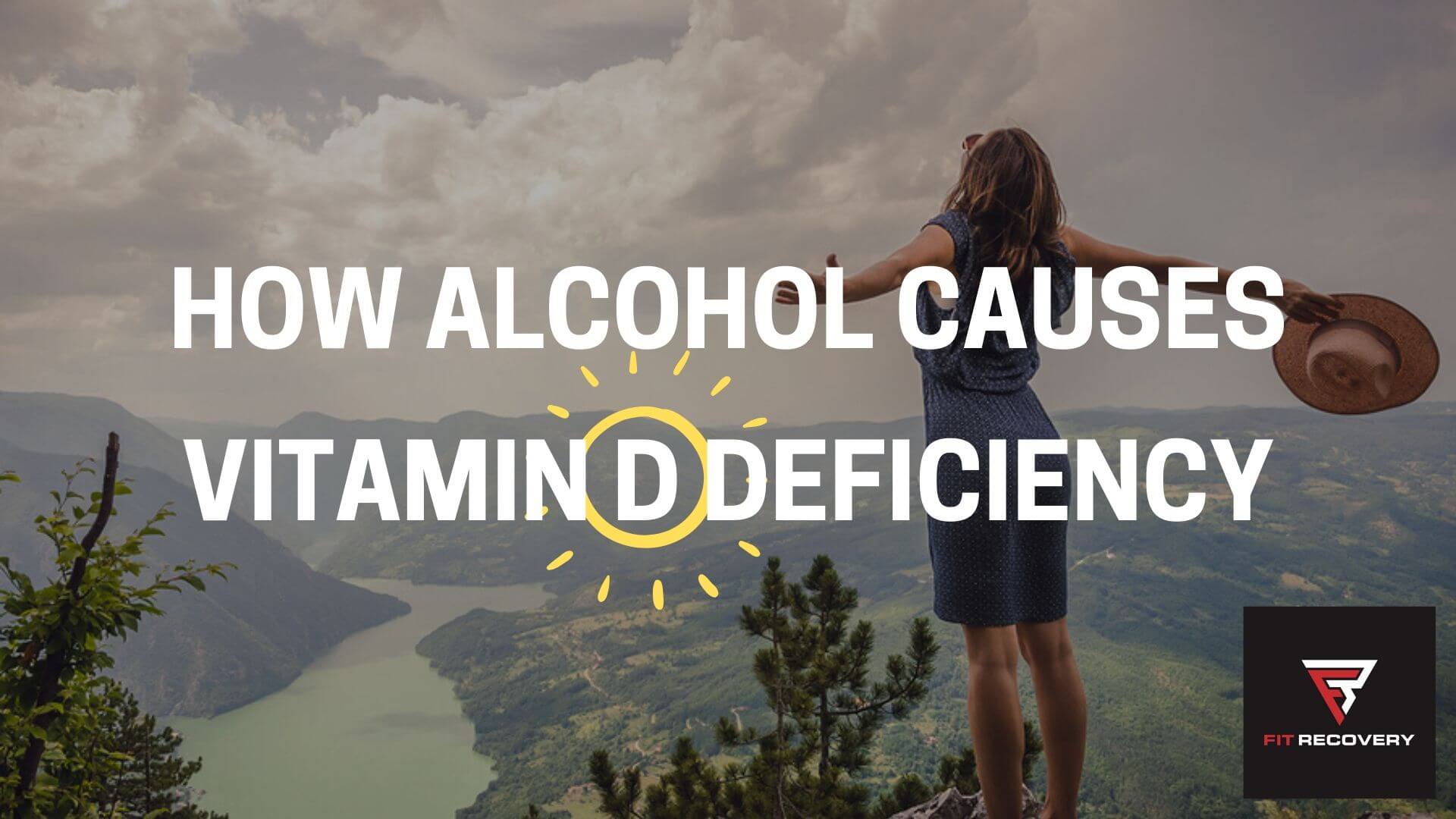
This article will explore why we need this nutriment, why addiction almost invariably leads to deficiency, and how you can proactively repair this deficiency to optimize your mental health.
Why Do We Need Vitamin D?
Vitamin D is a fat-soluble vitamin that our bodies convert into pro-hormones. The human body will produce this in response to direct sunlight.
While there are multiple forms of this, the form that we need most in order to create these important pro-hormones is vitamin D3.
Vitamin D3 is necessary for the following bodily processes:
- Absorption of magnesium, calcium, and phosphate
- Hormonal balance
- Immune system regulation
- Inflammation reduction
- Gene expression (for over 1,000 genes)
- DNA repair
- Serotonin production in the brain
This production is triggered by sunlight that reaches the eyes. Generally, 15 minutes of sun per day is recommended to maintain adequate levels of this vitamin. Research has shown that the vast majority of Americans do not have enough D3, which may partially explain the prevalence of chronic disease and depression.
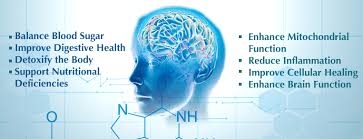
Does vitamin D make serotonin?
Vitamin D has long been neglected as an alcohol-depleted nutrient, with much of the attention going to important minerals like magnesium and B-vitamins like thiamine. In part, this is because old research only connected the dots between this nutriment and bone health.
More recent research has shown that this vitamin is necessary for MANY reasons that go far beyond strong bones.
Specifically, the connection between vitamin D and serotonin production was not made until recently. One of my favorite researchers and podcasters, Dr. Rhonda Patrick, synthesized existing research to show how vitamin D regulates the synthesis and action of serotonin. Serotonin is a neurotransmitter required for feelings of confidence and relaxation, as well as for sleep.
Because heavy drinking depletes serotonin levels over time, this nutriment is required to help addicts restore healthy levels of this neurotransmitter. Many symptoms of protracted withdrawal – especially depression – can be traced to a deficiency in serotonin.
Does alcohol cause a deficiency?
Heavy drinking causes nutrient deficiencies in 6 main ways, all of which deplete levels of vitamin D:
- Diuretic effect – It leaches water and nutrients out of your system.
- Damaged gut lining – It directly damages the lining of the stomach and intestines, making it harder to absorb nutrients
- Damaged gut microbiome – Good bacteria that help break down food are damaged by alcohol exposure, while harmful strains like candida yeast thrive from alcohol and sugar
- Foregone calories – Addicts tend to make room for alcohol, rather than quality foods
- Overworked liver and pancreas – Many nutrients are made available to the body by the liver, but the organ cannot process vitamins and minerals when it is preoccupied with detoxifying alcohol (which it only does at about 1 drink per hour).
- Acetaldehyde – This is the most common toxic byproduct, causing hangover symptoms, inflammation, and DNA damage that can lead to cancer. Antioxidants are depleted by constantly mopping up this toxin.
Vitamin D3 cannot be used by the body until it is activated by enzymes in the liver and kidneys. Addiction throws a wrench into this process by damaging these crucial organs.
Before I quit drinking, I often felt a dull pain and swelling under the right side of my ribcage. The pain became worse after prolonged binges. I later learned that this was a symptom of pancreas inflammation and that if my pancreas was inflamed, then my liver wasn’t healthy either!
Symptoms Of Vitamin D Deficiency
Did you know that 70% of Americans don’t meet the requirements for adequate vitamin D levels?! (source)
Here is a chart showing the percentages of people meeting the estimated average requirements (EARs) for some very important nutrients:

We’ve already gone over the numerous ways in which alcohol depletes this. Given the chart above, you can take a guess at what percentage of addicts are deficient in this crucial nutrient!
Symptoms of a deficiency include:
- Depleted serotonin (brain chemical required for relaxation and confidence)
- Depleted oxytocin (the “trust and bonding” hormone)
- Depression
- Faster aging
- Impaired immune system
- Weak bones
- Increased cancer risk
- Reduced brain cell growth
- Impulsive behavior
Working with a large number of private coaching clients has made me realize that this deficiency and addiction go hand in hand. I cannot tell you how many times I’ve watched someone’s mood improve almost overnight after beginning a supplement.
Recently, a former client of mine wrote to me and told me that his fiancee, who had not struggled with addiction, had finally beaten depression simply by taking vitamin D3 and omega-3 fatty acids!
I experienced a boost in my mood as soon as I started supplementation after I quit drinking. I did not know why this was the case at the time.
How To Supplement
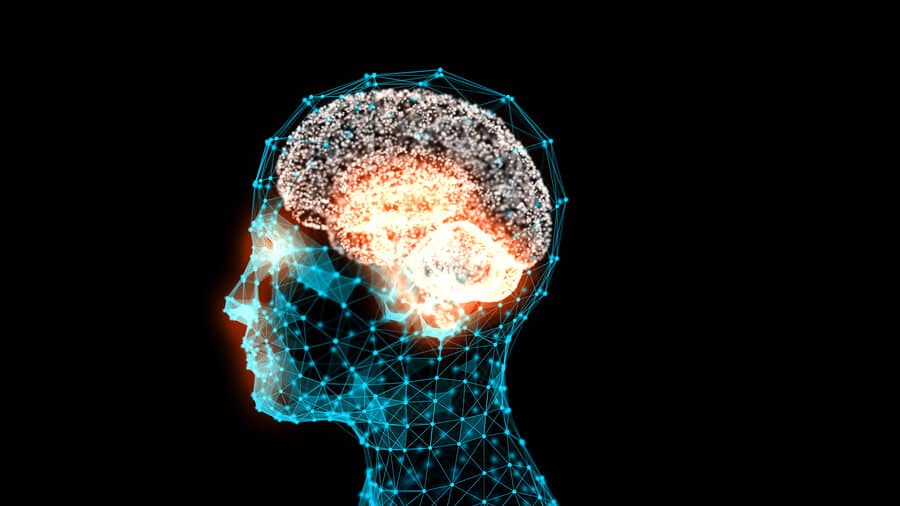
Food sources generally do not contain enough vitamin D3 to satisfy our requirements. Eggs, salmon, and tuna contain some of this, as do milk and grains that are fortified with this vitamin.
We evolved to obtain it primarily from the sun, but in modern society and in northern climates, getting sufficient levels is often not possible. Vitamin D3 deficiencies can be easily fixed through supplementation.
The RDA for vitamin D3 is currently set at 600 IU, but recent research has found that supplementation with about 4,000 IU per day is required to bring adults up to “adequate” levels. (source)
While people who are deficient in vitamin D3 typically feel better after beginning supplementation, it can take months (or up to a year) for adequate levels to be achieved.
After I quit drinking, I took around 5,000 IU per day for many months. I then moved to a new city with a beach nearby; since then, I have only taken extra during the winter or after long periods of rainy days.
I am a fan of the following supplements, all of which contain vitamin D3:
I’ve mentioned these options because not all supplements are optimal choices. Vitamin D2 is available in supplement form and often added to milk and cereals. Unfortunately, our bodies are inefficient at converting vitamin D2 into vitamin D3.
I have not seen any supplements for withdrawal that contain this nutriment, perhaps because the link between supplementation and addiction has long been overlooked. If you already take Calm Support, which is a fantastic product for many other reasons, then you could easily add in any of the above to reap the benefits.
Vitamin D toxicity can begin at 10,000 IU depending on your biochemistry. Do not try to megadose!
Scientific Research

Many studies have demonstrated that this nutriment is necessary for bodily health. Recent research has led to some relevant conclusions:
- Low levels of vitamin D are associated with depression, psychotic symptoms, and more recently, alcohol use disorders (source)
- Vitamin D3 and omega-3 fatty acids may improve depression, reduce impulsive behavior, and modulate the severity of psychiatric disorders by making more serotonin available (source)
- Deficiency caused by drinking contributes to alcohol-related muscle weakness (source)
- Improves mental function in people with cognitive impairment (source)
Unfortunately, most research money goes to studying prescription drugs instead of basic nutrients that we need to function properly, yet they cannot be patented.
What vitamins do heavy drinkers need?
If you’re a heavy drinker or recovering from a heavy drinking lifestyle, repairing your vitamin D deficiency is just the tip of the iceberg. Be sure to check out my broader article on vitamins for withdrawal.
With nutritional repair and natural remedies, trial and error is the best approach. I’ve never had a bad reaction to vitamins or natural supplements. Some have simply worked much better than others. The best ones have worked so well that they’ve seriously changed my life.
Basic (high-quality) supplements are much safer than prescription drugs that mask the symptoms of underlying nutrient deficiencies. As a case in point, it makes little sense to take an antidepressant for depression caused by a vitamin D deficiency. Doing so might even be detrimental, because untreated nutrient deficiencies can cause much more serious complications down the road.
If you have any questions, please post them in the comment box below.

Authors
-
Chris Scott founded Fit Recovery in 2014 to help people from around the world dominate alcohol dependence and rebuild their lives from scratch. A former investment banker, he recovered from alcohol dependence using cutting-edge methods that integrate nutrition, physiology, and behavioral change. Today, Chris is an Alcohol Recovery Coach and the creator of an online course called Total Alcohol Recovery 2.0.
View all posts -
Dr. Rebeca Eriksen is the Nutritional Consultant for Fit Recovery. She has a PhD in Nutritional Genetics from Imperial College London, and over ten years of clinical experience designing custom nutritional repair regimens for patients recovering from alcohol addiction. In addition to her work at the exclusive Executive Health clinic in Marbella, Spain, she helps to keep Fit Recovery up to date with emerging research.
View all posts





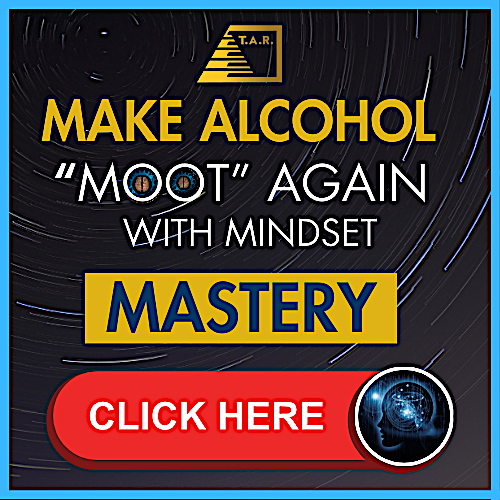
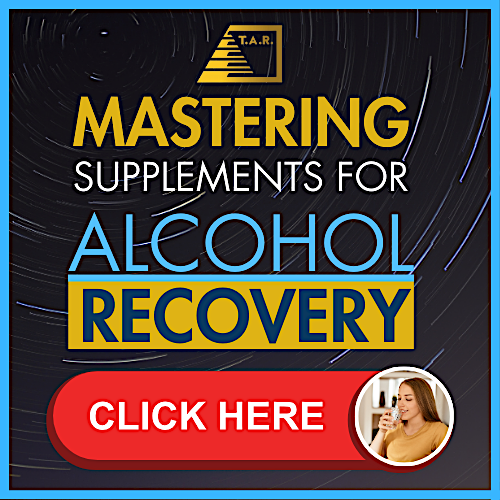
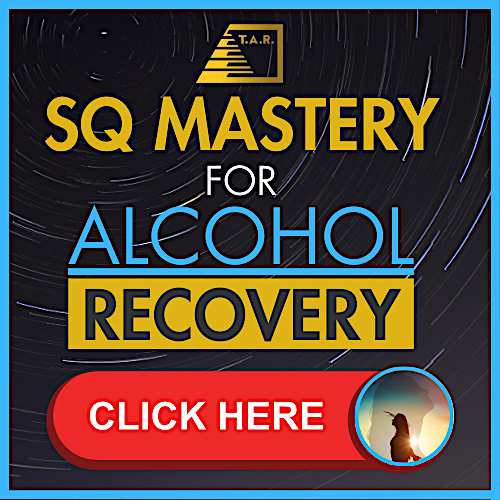


Life extension vitamin d k2 sea iodine I was told this supplement is dangerous due to over the limit of iodine causing multiple cases of thyroid issues.. can you speak on this? Also what do you recommend taking with vitamin d k2 should I add magnesium & zinc?
Great article! But one dangerous bit of misinformation, repeated everywhere (not just here), is that visible. sunlight is all we need to make our D. Actually, it is only the tiny & invisible UVB range of the Sun’s radiation, that works for D production! Sadly, UVB’s available time range is tightly limited even in high Summer to around noon, maybe a couple of hours. Though, depending on skin-tone, 20min – 2 hours will work. But far worse, above 35-40° latitude, (entire Temperate & Arctic Zones!) the curvature of the Earth means that UVB is not able to penetrate so much… Read more »
Chris, having seen the comments posted below I am still unsure concerning the amount of alcohol consumption. I am sure it could be different for each person. Can you explain what amount of alcohol consumption per day or per week is generally considered ‘heavy’ in reference to the Vitamin D deficiency discussion posted above? Based on the labeling on vitamin D2 it states to not consume alcohol. It does not say anything about amounts. I really do not want to give up weekend wine drinking unless I must. The doctor prescribed D2 at 50,000 UI once per week for the… Read more »
Hi David, D3 is better than D2 for raising blood levels of vitamin D, but perhaps your doctor has good reason for mega-dosing D2. As for your optimal level of alcohol consumption, I can’t answer this question for you: “Heavy” is a relative term that depends on body weight, age, health status, etc. For people who do drink, weekend binges seem to be harder on the liver (crucial for making vitamin D bioavailable) than spreading the same amount of alcohol throughout the week. Recent research suggests that there’s no “safe” level of alcohol consumption for anyone. Thus drinking alcohol is… Read more »
50,000IU/week of D2 must be taught in medschools from older science that thought D2 was not effectively different than D3. But this is standardized ‘pre-loading’ dosing, when human bodies are far from standard. The pills seem to be produced in only this size. But 50,000IU is far too low for the obese! A Hormone D/Covid hospitalized RC study in Spain safely & most successfully gave treatment group patients 60,000IU each day of quickest, 2hour metabolizing Calcifediol D metabolite for 2-4 weeks till recovery or death. Onlya tiny number in the treatment arm died! But a full quarter, even at this… Read more »
Much good information here, Chris! One caveat: your sentence on “megadose” of D3 is sadly out of date. There is no scientific evidence yet concerning safety of high vitamin D3 levels, and almost all responsible researchers now agree that daily intake much higher than 10,000 IU is appropriate. It certainly is for drinkers and ex-drinkers. That said, thank you for adding the importance of D3 to the growing understanding of how to deal with the long term effects of alcohol use.
Thanks John, I agree that megadoses can be appropriate for some people and probably less harmful than previously thought! I myself take 5,000 IU per day and get plenty of natural sunlight.
‘Megadoses’ are critical and completely safe in the short term for almost everyone! Especially with our low☀D/obesity pandemic.
Hypercalcemia never appears til the blood level is well above a hard to reach 150ng/ml.
D bioavailability is lower & lower as the dosages go up, so while going from 1,000 to 2,000 nearly doubles its bioavailability in our metabolism; going from 100,000 to 200,000 barely adds anything.
I recently had a complete physical and my Doctor said the test results indicated I had a Vitamin D deficiency. I stopped taking the D supplement over 1 year ago. I am now starting to take the supplement D to improve my Health. My question is does alcohol affect the Supplement that I am taking? I drink Daily about 1 Bottle of Wine and maybe some Vodka. Does this consumption affect my Vitamin D intake?
Hi Clyde, alcohol can contribute to vitamin D deficiencies. It can also take months of supplementation to repair a vitamin D3 deficiency. Lots of info on this website about going about that process. You can get off the booze if you resolve to do so!